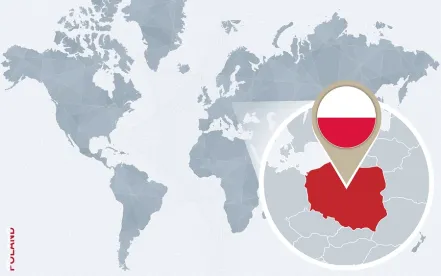Significant changes will affect Poland’s highest court when President Andrzej Duda, as expected, signs new legislation just passed by Parliament.
The changes are far-reaching, but among the major changes are:
Creation of a division of extraordinary control with new jurisdiction – A new chamber of the Supreme Court called the “Chamber for Extraordinary Control and Public Matters” (Izba Kontroli Nadzwyczajnej i Spraw Publicznych) will be created. Initially, the new Chamber will have the authority to re-adjudicate any judgment issued by any court that became final and binding after 17 October 1997, if necessary to ensure the rule of law and social justice where:
- The decision violates the principles or freedoms and human and civil rights specified
- in the Constitution
- The decision grossly violated the law by erroneous interpretation or misapplication thereof
- There is an obvious contradiction between important findings of the court and the collected evidence
- Such decision cannot be revoked or changed utilizing other remedies
After three years from the date of entry into force of the new legislation, the new Chamber will have this right, in relation to any judgment which became final and binding during the preceding five years or, if a cassation (an appeal to the Supreme Court) was filed against the judgment, within one year from the date of final determination of the cassation.
Only a limited number of parties will have the right to submit extraordinary complaints to the new Chamber: the Prosecutor General; the Ombudsman for Human Rights; and (within their scopes of competence) the President of the General Prosecutor’s Office of the Republic of Poland; the Ombudsman for Children; the Ombudsman for Patient’s Rights; the Chairman of the Financial Supervision Commission; the Financial Ombudsman; and the President of the Office for Protection of Competition and Consumers.
Cases will be heard by panels consisting not only of judges but also of lay persons (jurors) elected by Poland’s Senate (the higher chamber of the parliament) in a secret vote (as a rule, one juror and two judges will sit on a panel, or two and five respectively, if the extraordinary complaint regards a judgment of the Supreme Court following a cassation). To date, jurors sit on panels in courts of first instance for criminal cases and certain civil cases, but they have not participated in the appeals process.
Increasing the number of judges and reducing their retirement age – The number of the judges of the Supreme Court will be increased from the current 81 sitting judges to at least 120. The current retirement age of 72 will be reduced to 65. The right of a judge to continue to be active after the retirement age after providing evidence of good health is limited to judges who receive the consent of Poland’s President to remain active. Because approximately 30 of the current 81 judges are above the age of 65, these two changes will mean that a new majority of judges on the Supreme Court will need to be appointed.
Changes to the method of appointing judges – Judges of the Supreme Court will be appointed by Poland’s President, following their nomination by the National Council of the Judiciary. In separate legislation, the parliament has changed the method of electing members of the National Council of the Judiciary. Before, a majority of the members of this council were judges chosen from assemblies representing various levels of the judiciary. Now, Poland’s Sejm (the lower chamber of the parliament), will have the right to choose 15 members of the council – a majority — from among Polish judges, thereby ending the dominance by members of the judiciary to nominate judges to the Supreme Court.
Conclusion — The effects of the new right to appeal decisions to the Chamber for Extraordinary Control and Public Matters, particularly the review period for 20 years’ of judicial decisions that will commence when the law takes effect, and the changes in the membership of and method of election to the Supreme Court remain to be seen. The law will also require the President of the Supreme Court Malgorzata Gersdorf to resign, notwithstanding the provision in the Constitution stating that the President shall serve for a six-year term. Following signature by President Andrzej Duda, the legislation would come into force in March 2018, three months after its expected date of publication.





 />i
/>i
